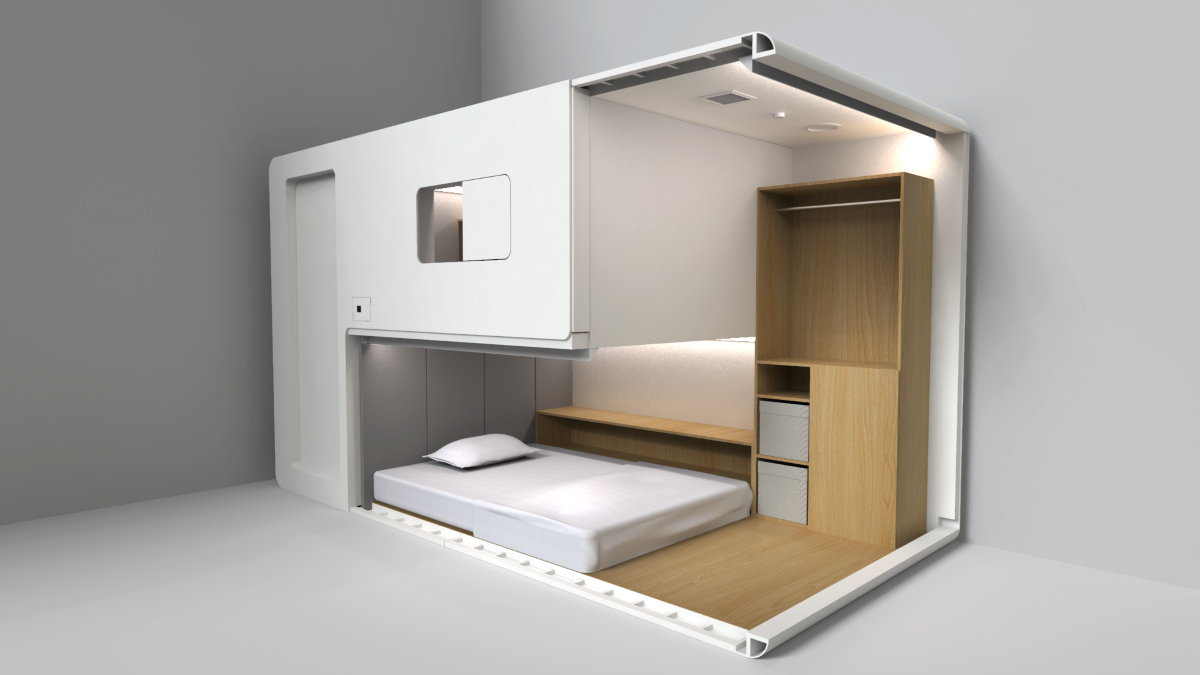Bobobox Expands Services, Optimistic with Local Tourism Industry
Launching Bobocabin and Boboliving products, utilizing existing technology for operations
The tourism industry is the first most affected layer by the Covid-19 pandemic. Many companies are competing to develop other businesses as a pivot to buffer due to survival. The same strategy is taken by proptech startup Bobobox, which is developing several innovations outside the capsule hotel.
Bobobox's Co-Founder and CEO, Indra Gunawan said to DailySocial that his startup was quite affected by the pandemic. However, thanks to the team persistence, the company was able to adapt quickly and continue to innovate during that time.
“As a result, we managed to get a V shape recovery that is much faster than we predicted. This is also the fact that 90% of our market is domestic, has helped us to survive the crisis better," Indra said.
The Series A funding was announced in March 2020, which is the right ammunition for Bobobox to stay afloat. Currently, the company has launched two new products, accommodation services with the concept of co-living (Boboliving) and glamping/glamor camping (Bobocabin). There are other products currently in progress, including hourly rental single pods and campervan accommodation.
Indra explained that Bobobox and Boboliving originated from the company's internal findings from its customers. It was found that the domestic market rose faster and used to stay in the range of 1-2 days, now it is longer by around weeks to months. This condition is reflected in the Bobobox report, where long-term guests have grown rapidly during the pandemic.
As narrowed down, there are now two types of hotel guests. First, those who still need to go to the office during the pandemic and want to avoid long-distance travel. Second, people who work from home, but do not have fast work facilities such as high-speed Wi-Fi and a safe environment. "This led us to develop Boboliving and the product was sold out within 3 weeks on the market."
The result is, Bobobox noticed that WFH lifestyle will continue in the future, even when Covid-19 has ended. Then, today's consumer trends are driven by self-protection and social distancing. "We want to develop solutions where people can have alternative options for work and school fees (for the younger ones)."
Bobocabin and Boboliving
 Boboliving / Bobobox
Boboliving / Bobobox
Bobocabin and Boboliving take advantage of existing technology for their operations. In terms of design, Bobocabin is designed by adopting a futuristic modular design with a capacity of two adults and one child while considering the need for social distancing restrictions. Each cabin is equipped with modern facilities, supported by IoT technology to control the features in it, such as windows, lights, doors, and audio speakers that can be controlled from a visitor's smartphone.
Bobocabin is available in two areas in Bandung, Rancupas, and Cikole by utilizing land owned by Perhutani. Respectively an area of 1.26Ha and 1Ha. Apart from the rooms, Bobocabin is also equipped with 24-hour front desk, barbecue and bonfire. The official fee ranges from IDR 450 thousand to IDR 550 thousand per night.
Bobocabin emphasizes the need for sustainable tourism through the nature-based tourism segment that offers more benefits from an economic, social, and environmental perspective.
Meanwhile, Boboliving is like a boarding house with more spacious room facilities for work areas. The rooms are prepared with 10 pods containing mattresses and wardrobes. These capsules can be rented daily, weekly, monthly, and yearly. Currently, Boboliving is available in Pancoran, South Jakarta.
“Bobobox sees the huge economic potential with the existence of a residential business ecosystem such as co-living, especially for property business activists who want to start a business yet constrained by limited land. This is also driven by the need for housing which is increasing every year, but it is inversely proportional to the availability of land, especially in big cities," Indra said in an official statement.
Regarding the latest development of the Bobobox capsule hotel, it has distributed in several cities on Java, including Yogyakarta, Semarang, and Solo. Until the fourth quarter of 2020, this product recorded an occupancy rate of back to 80% from the pre-pandemic position which reached the 80% -90% range.
Indra is optimistic from the various sources he summarized, indicating that more than 70% are interested in traveling. This shows that vacations seem non-negotiable to many. "With a market fit for our new product, we are confident that we can reimagine tourism across Indonesia with an extraordinary experience."
– Original article is in Indonesian, translated by Kristin Siagian
Sign up for our
newsletter
 Premium
Premium
